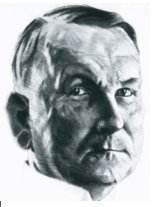Heart Palpitations ARE a Stomach Issue – Video
Heart Palpitations: This 20th Century German Doktor Had it Right After All!
What you will learn about
Summary
Dr. Vikki discusses the Roemheld syndrome, a condition where gastrointestinal issues, such as heartburn, gas, and bloating, can cause heart palpitations and other symptoms. The syndrome was described by Dr. Ludwig Roemheld in the early 1900s but is now considered obsolete in traditional medicine.
Dr. Vikki criticizes the medical culture for not recognizing the interrelationship between different organs and systems in the body. She explains that the syndrome is caused by imbalances in the gut microbiome, which leads to inflammation and increased intraabdominal pressure. This pressure irritates the vagus nerve, which then slows the heart, leading to an increase in heart rate and other symptoms.
Dr. Vikki emphasizes that the syndrome is real and can be resolved through Root Cause medicine, without the need for drugs or surgery.
Transcript of the video
by Dr. Vikki Petersen
If you thought that your heart palpitations were somehow related to your stomach or your GI tract, meaning what your gastrointestinal tract is doing, you are quite right.
Heart Palpitations: Undetermined Cause?
Yet you might have been very frustrated over some passage of time, maybe finding yourself going to the ER in the middle of the night because you’re having heart palpitations and you are worried that you’re having a heart attack… only to be told your heart is perfectly fine.
Yet as you live with this for longer and you know have heartburn or you have gas and bloating, you have constipation, you feel a lot of pressure in the area of your stomach, you’ve got shortness of breath, sometimes you feel anxiety and it’s your body… You’ve been living with it for a while and you really start to be suspicious that these heart palpitations, you’re finding, maybe elevated blood pressure, even really have this interrelationship…
But when you speak to your cardiologist about it or you speak to your gastroenterologist about it, you’re looked at like you’re crazy. Or you’re certainly given no validation to your suspicion.
Heart Palpitations and Herr Doktor Roemheld

Which is that there is a relationship the way he talked at a cluster of heart symptoms stimulated by gastrointestinal (meaning: stomach, colon changes) resulting in heart palpitations and a slowing of the heart.
Symptoms and Roemheld’s Analysis
I’m going to describe to you why it actually starts with slowing of the heart, then the heart reacts to that.
Some of the symptoms associated with the syndrome are not just the heart palpitations, but the shortness of breath, fatigue, anxiety, tachycardia (where the heart is beating very quickly), cramping feeling in the muscles, feeling very tight around your diaphragm area, sleep disturbance, dizziness or vertigo.
If you have all or several of those symptoms, let me explain what’s going on.
He [Dr. Roemheld] also quite rightly talked about the fact that some of the causes were excess gas, constipation, sometimes gallbladder issues and hiatal hernia. He actually mentioned (way back in the early 1900s!) hiatal hernia and this association with the heart.
Heart Palpitations: The Lost Knowledge
You’d be interested to know that the Roemheld syndrome is considered obsolete and that is why your doctor was not trained on it. And that is why they look at you like you don’t know what you’re talking about when you’re trying to explain to your doctor that you feel your heart issues are related to gastrointestinal imbalances.
One, you’re right.
Two, it’s sad that this syndrome, which was very astutely put together and evaluated by Ludwig has now been considered obsolete.
A Problem of Culture

Root Cause medicine does the exact opposite. We look at the body as a whole and appreciate that there’s really no organ or system of the human body that’s not interrelating with every other organ and system of the human body.
But the traditional medicine culture is very about “a pill for every ill!” as people like to say, or just putting you in this diagnostic box.
What’s interesting about this Roemheld syndrome is that they [our doctors, today] actually stated that when people have this sort of constellation of symptoms, as soon as they deem that the heart is fine, then the next step is a psychiatric workup. Okay, great…
So you have nothing wrong with your heart — which Dr. Roemheld agreed that there’s nothing actually wrong with the heart — and now the next thing is telling you “It’s all in your head, you’re making it all up“, which is factually incorrect.
Back to the Causes of These Heart Palpitations
So what we’re really talking about is anatomy. What happens is that as a result of fairly longstanding gastrointestinal symptoms… — maybe you had a lot of antibiotics as a child, maybe you took acne medication, you had some time in your life maybe where you were on a lot of antibiotics or you didn’t grow up with the best diet, maybe gotten to high school, college age and really didn’t have the best diet. Whether you had constipation, diarrhea, you were diagnosed with IBS. Constipation is very common, but any sort of abnormality of bowel function is very common…
So, what happens is, over the course of time (it doesn’t come on suddenly), you get an imbalance of the good bacteria versus bad bacteria in your colon (it’s called the microbiome) that creates inflammation, a lot of inflammatory organisms, and you get what’s called “increased intraabdominal pressure” that builds.
Pressure Builds Up…
This can certainly affect gallbladder function, liver function… Also that pressure gets to a point where… what does it run into on your left side? It runs into your stomach just under your rib cage. On the right side is your liver.
Your liver is a very solid organ. It’s not compressible. Your stomach is. So that pressure compresses the stomach, and the contents of your stomach — which is acid — goes up your esophagus. Now what happens then is you can get acid reflux, you can get heartburn, and you’re put on an antacid.
This pressure and inflammation in the gastrointestinal tract starts to irritate the vagus nerve. The vagus nerve is our longest cranial nerve. It actually is the esophagus which connects your mouth to your stomach.
The vagus nerve is like a web going around the esophagus. Quite fascinating. Any pressure and inflammation in that area really distresses the vagus nerve (I want to make sure I describe this well).
The Vagus Nerve Gets Irritated…
So the compression of the GI tract irritates the vagus nerve. The vagus nerve then slows your heart. It can slow the heart to the degree that the body worries that the heart is not going to beat again, right? (The human body is an amazing, amazing machine).
So what happens is your autonomic — you can think of sort of an automaticity, automatic part of your nervous system — kicks in and says, “Uh-oh, Heart, I don’t know why you’re beating so slow, but this is not good!“.
Then it elevates the blood pressure a bit and you get this increase beating of the heart to counter this vagus irritation. Okay?
So the vagus nerve is all about calm and slow, which is great until… it calms and slows too much. And then we come in with having to override it. That’s that problem.
All of a sudden your heart is beating out of your chest, you’re convinced you’re having a heart attack, and off to the ER! You see?
Heart Palpitations Trigger Anxiety…

The “fight or flight“, I tell patients, is a lot like “why do we have smoke detectors?” Because where there’s smoke, there can be fire. So all of a sudden you’re awakened in the middle of the night, your smoke detector is going off, and this is to get you moving because something bad could be right around the corner.
It’s the same thing with the fight or flight nervous system. When your breathing rate really slows and your heart rate really slows, that nervous system kicks in and says, “Okay, wake up, get moving! Something bad is happening here!”
It’s trying to protect you. It scares the bejesus out of you, but it’s trying to protect you.
So, in summary, I want you to know that this cardio-gastric reflex, this Roemheld syndrome — which of course is obsolete because it did not hold up to “true science”… which is ridiculous because we see it constantly — is very real.
And if it’s your case, please know that certainly it’s not in your head. And the fact that you don’t actually have heart disease is great, but… it makes the problem no less real.
There is a Natural Treatment
Here at Root Cause Medical Clinic, we know how to resolve this issue. It’s not difficult. It doesn’t take drugs or surgery. You deserve to feel great and enjoy life, not be fatigued, not have terrible sleep, not be freaked out with anxiety and heart palpitations, and… all the other symptoms that go with it.
I wrote a book titled Hiatal Hernia Syndrome toward the end of Covid, around 2021-22. I wrote it during Covid. You can definitely look at that.
If you want assistance, please reach out to us at 727-335-0400 to book a consultation.
Additional Resources:
Hiatal Hernia: There is a Natural Treatment
Dr. Vikki Petersen’s Book: Hiatal Hernia Syndrome:- Many Symptoms, One Cause

